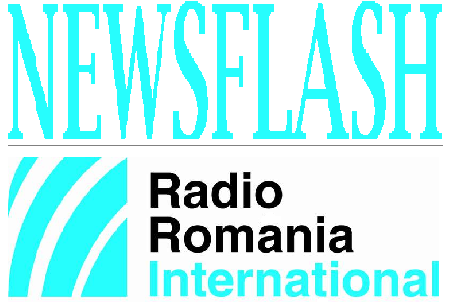March 28 2014 UPDATE
A roundup of the some of the main stories in Romania today.

România Internațional, 28.03.2014, 19:47
Romania celebrates on Saturday the tenth anniversary of its becoming a full-fledged NATO member. On 29th March 2004, Bucharest deposited its instruments of ratification to the US State Department, the US being the official repository of the North Atlantic Alliance Treaty. On 2nd April 2004, the Romanian flag was officially raised at the NATO headquarters in Brussels. Supported by the entire political class in Bucharest and public opinion, the country’s NATO accession was preceded by an invitation to join the Alliance at the Prague summit in 2002. In 1994, Romania was the first ex-communist state to support NATO’s intervention in Kosovo, and later, at the beginning of the third millennium, it contributed its own troops to the US-led anti-terrorist campaign in Afghanistan and Iraq. On Friday, the former Norwegian prime minister Jens Stoltenberg was appointed NATO secretary general, to take over from Anders Fogh Rasmussen on 1st of October.
The World Bank approved on Friday a 339 million dollar loan for the reform of the Romanian healthcare system. According to a World Bank release, the money is meant to improve access to and the quality and efficiency of public health services. The World Bank is working, together with the government in Bucharest, on a new partnership strategy for the 2014-2017 period, under which Romania may receive 1 billion euros worth of funding a year.
Romania’s foreign minister Titus Corlatean travels to Chisinau on Monday attend the second Moldova-Romania intergovernmental meeting for European integration. A number of collaboration agreements will also be signed on the margins of this meeting, including bilateral agreements in areas such as the judiciary, the media and food safety. Mr Corlatean will also meet the president of the Republic of Moldova, Nicolae Timofti, prime minister Iurie Leanca, Parliament speaker Igor Corman and his counterpart in Chisinau Natalia Gherman. Romania has been a constant supporter of the European integration of the Republic of Moldova, a neighbouring state with a majority Romanian speaking population.
An exhibition entitled “Romania’s Treasures”, which opens in Beijing in September contains heritage pieces from 25 museums in Bucharest and from across the country, including almost 700 architectural and artistic pieces, the culture ministry announced on Friday. The exhibits will travel to China on board military planes. A similar exhibition entitled “China’s Treasures” was staged by the National History Museum of Romania in 2013.
Romania will officially change clocks on March 30th. Therefore daylight saving time will start on Sunday morning, 3.00 hours becoming 4.00 hours, which makes Sunday the shortest day of the year, with only 23 hours. The official difference between Romania’s official time and GMT will be 3 hours. 70 trains, of which 8 international trains, will have their schedules changed. Given that in Romania’s neighbouring countries the daylight saving time starts at the same time, trains will run between the stations at the border with the Republic of Moldova, Hungary, Serbia, Ukraine and Bulgaria according to the train timetables in force. In Romania the daylight saving time has been applied since 1979 with a view to making best use of natural light and reducing artificial lighting.




























